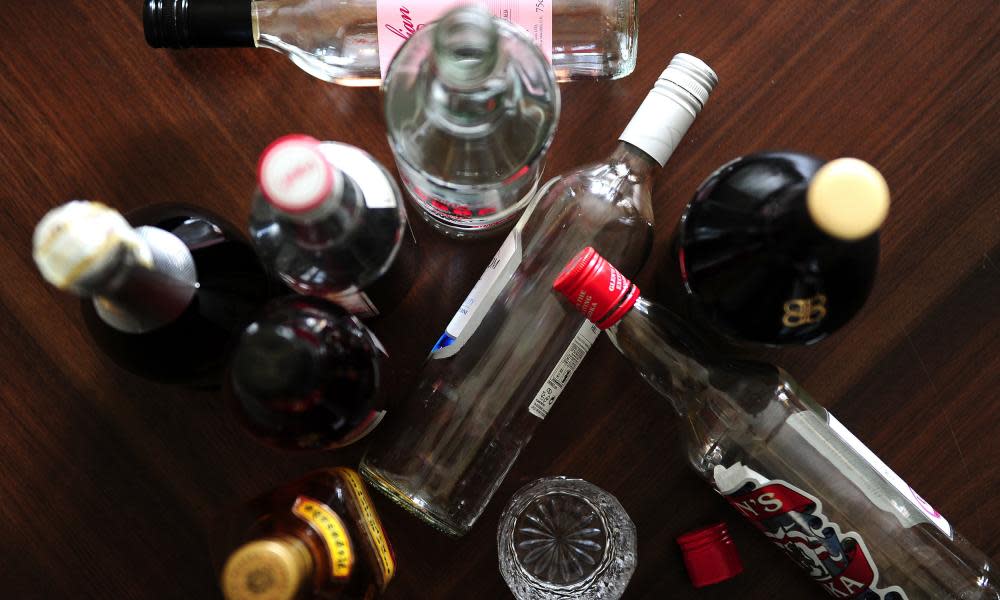UK pupils taught about alcohol with ‘misleading’ industry-funded resources

Researchers say teaching materials play down harms and shift responsibility on to young people
Schools are using “misleading and biased” information materials funded by the alcohol industry to educate pupils as young as nine about drinking, according to a study.
Teachers in thousands of UK schools employ lesson plans, factsheets and films produced by bodies with close ties to the drinks trade even though they “portray alcohol as a normal consumer product to impressionable young minds”, the researchers found.
The materials are intended to deter young people from underage drinking, but they are potentially harmful because they downplay the harms drink can cause and seek to “blame-shift” responsibility for problems from manufacturers on to young people, the researchers say.
Academics from the London School of Hygiene & Tropical Medicine analysed teaching materials about alcohol and its health impact put together for use in schools by three bodies: Drinkaware for Education, Smashed and Talk About Alcohol.
“Alcohol industry-sponsored youth education programmes serve industry interests and promote moderate consumption while purportedly educating children about harms and influences of alcohol use,” concluded the authors, who included Dr May van Schalkwyk and Prof Mark Petticrew.
“The ongoing exposure of children and young people to such conflicted and misleading materials needs urgent attention from policymakers, practitioners, teachers and parents, and resources dependent on industry support should cease being used in schools,” they added.
The academics’ findings, which have been published in the medical journal PLOS ONE, are based on their analysis of materials produced by the three bodies – including worksheets, teachers’ guidance notes and PowerPoint presentations – between 2017 and 2019.
They conclude: “All programmes promoted familiarisation and normalisation of alcohol as a ‘normal’ adult consumer product, which children must learn about and master how to use responsibly when older.”
The materials also “employ selective presentation of harms, including misinformation about cancer.” Some misleadingly imply that only heavy or excessive drinking raises the risk of the disease, whereas research shows low levels of drinking also increases the risk of some types such as breast and mouth cancer, they say.
Drinkaware for Education is an educational initiative run by the organisation Drinkaware, an industry-funded body that “aims to change the UK’s drinking habits for the better”. It produces a range of “curriculum-linked education resources aimed at teaching nine- to 14-year-olds about the harms and risks associated with alcohol” that are aimed at teachers.
Smashed is a theatre-based educational programme that aims to educate school pupils about underage drinking and also supplies materials for teachers. Since 2005 it has been sponsored by Diageo, the drinks firm that makes Guinness, Smirnoff and other brands. Diageo’s website states that “Smashed Online will be made available to over 1 million students aged 12-14 across 5,500 schools in the UK”.
Talk About Alcohol, which produced a teacher manual and lesson plans, is a programme run by the Alcohol Education Trust, a charity that says it “supports young people aged 11-25 in making more informed life choices through the 4,500 schools and youth organisations we support”. The Alcohol Education Trust’s donors include bodies funded by the alcohol industry, but also the national lottery and police and crime commissioners.
Van Schalkwyk and Petticrew highlighted a slide in a PowerPoint presentation produced by Drinkaware for secondary schools containing the words “drinking alcohol makes you happy” beside an image of young people drinking wine as an example of “normalisation”.
“The materials we analysed contribute to the alcohol industry narrative that it is people’s poor choices and a lack of control or responsibility as well as peer pressure that are to be understood as the problem, shifting blame on to individuals, in this case children and young people, and away from the inherent harmful nature of alcohol itself,” they said.
Drinkaware has removed the materials analysed by the researchers from its website.
A spokesperson said: “The materials included in this research are out of date and don’t reflect our current guidance. They should have been removed from our website and they now have been. We’re sorry this didn’t happen sooner.”
Helena Conibear, the Alcohol Education Trust’s chief executive, accused the authors of “gross misrepresentation” and including “assertion”, “polemic” and selective quotation in their findings.
“We hope our programme has played no small part in the very encouraging falls in underage drinking, drunkenness and hospital admissions over the last decade,” said Conibear. Research by University College London and the National Foundation for Education Research showed that Talk About Alcohol delays the age at which children start drinking, and it had won awards from Teach First and The King’s Fund, she added.
A Diageo spokesperson said: “Since the Smashed project launched in the UK over 15 years ago, thousands of young people have explored the dangers and consequences of alcohol misuse through the programme, without reference to any specific kinds of alcohol or brands. Underage drinking has been falling in the UK over the last decade.”
It stressed that studies had found that about four in five 16- to 24-year-olds in the UK either do not drink at all or stick to the chief medical officer’s guidelines on maximum consumption, and that the proportion of young people who are teetotal has risen to 23%.

 Yahoo News
Yahoo News 
